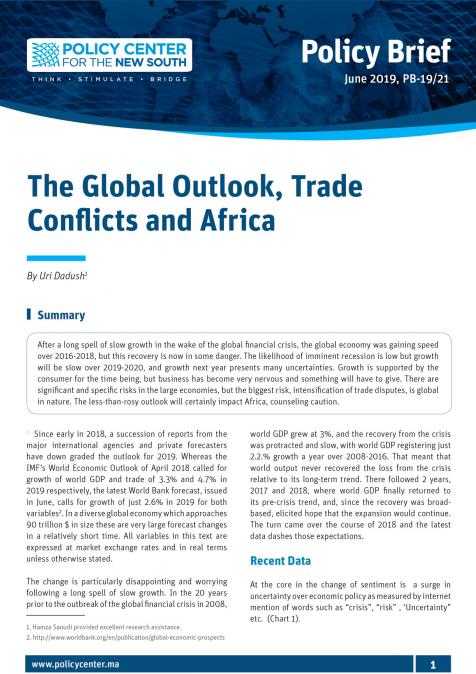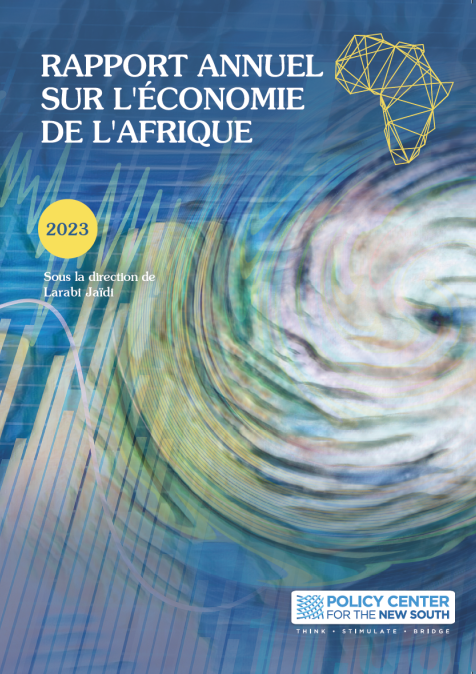Publications /
Policy Brief
After a long spell of slow growth in the wake of the global financial crisis, the global economy was gaining speed over 2016-2018, but this recovery is now in some danger. The likelihood of imminent recession is low but growth will be slow over 2019-2020, and growth next year presents many uncertainties. Growth is supported by the consumer for the time being, but business has become very nervous and something will have to give. There are significant and specific risks in the large economies, but the biggest risk, intensification of trade disputes, is global in nature. The less-than-rosy outlook will certainly impact Africa, counseling caution.
Since early in 2018, a succession of reports from the major international agencies and private forecasters have down graded the outlook for 2019. Whereas the IMF’s World Economic Outlook of April 2018 called for growth of world GDP and trade of 3.3% and 4.7% in 2019 respectively, the latest World Bank forecast, issued in June, calls for growth of just 2.6% in 2019 for both variables . In a diverse global economy which approaches 90 trillion $ in size these are very large forecast changes in a relatively short time. All variables in this text are expressed at market exchange rates and in real terms unless otherwise stated.
The change is particularly disappointing and worrying following a long spell of slow growth. In the 20 years prior to the outbreak of the global financial crisis in 2008, world GDP grew at 3%, and the recovery from the crisis was protracted and slow, with world GDP registering just 2.2.% growth a year over 2008-2016. That meant that world output never recovered the loss from the crisis relative to its long-term trend. There followed 2 years, 2017 and 2018, where world GDP finally returned to its pre-crisis trend, and, since the recovery was broad-based, elicited hope that the expansion would continue. The turn came over the course of 2018 and the latest data dashes those expectations.











